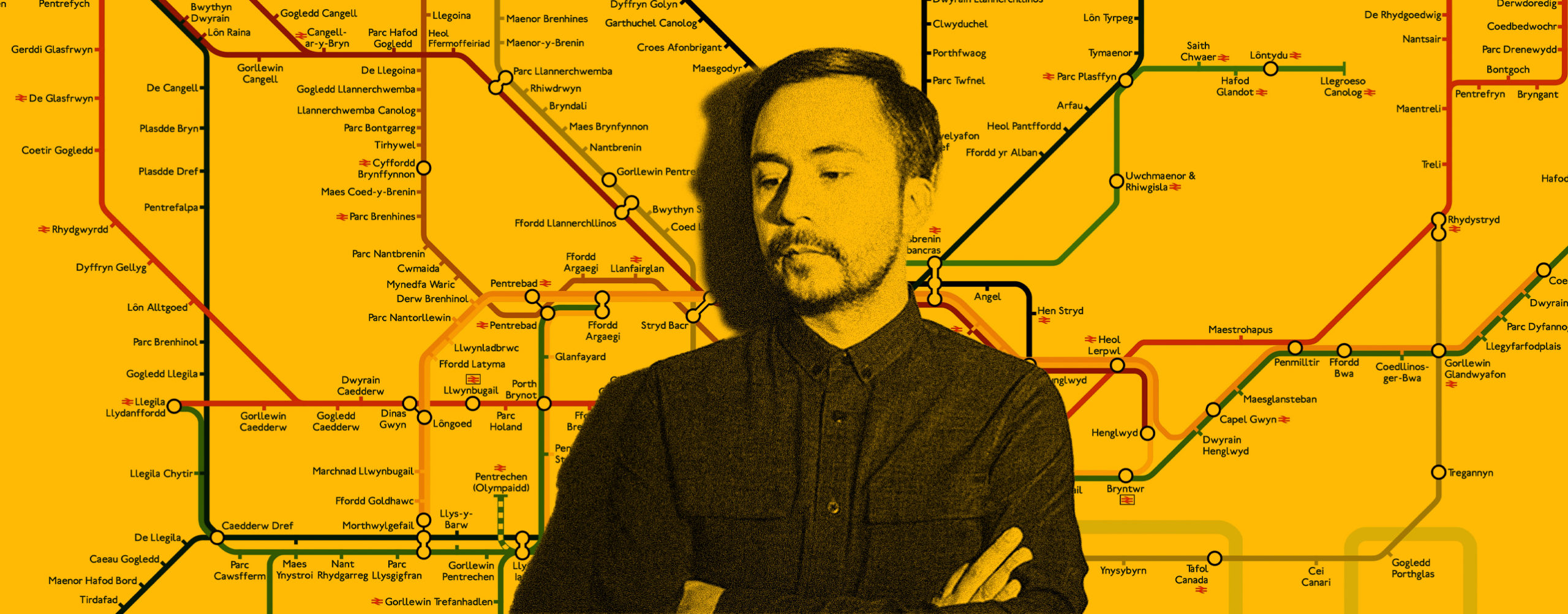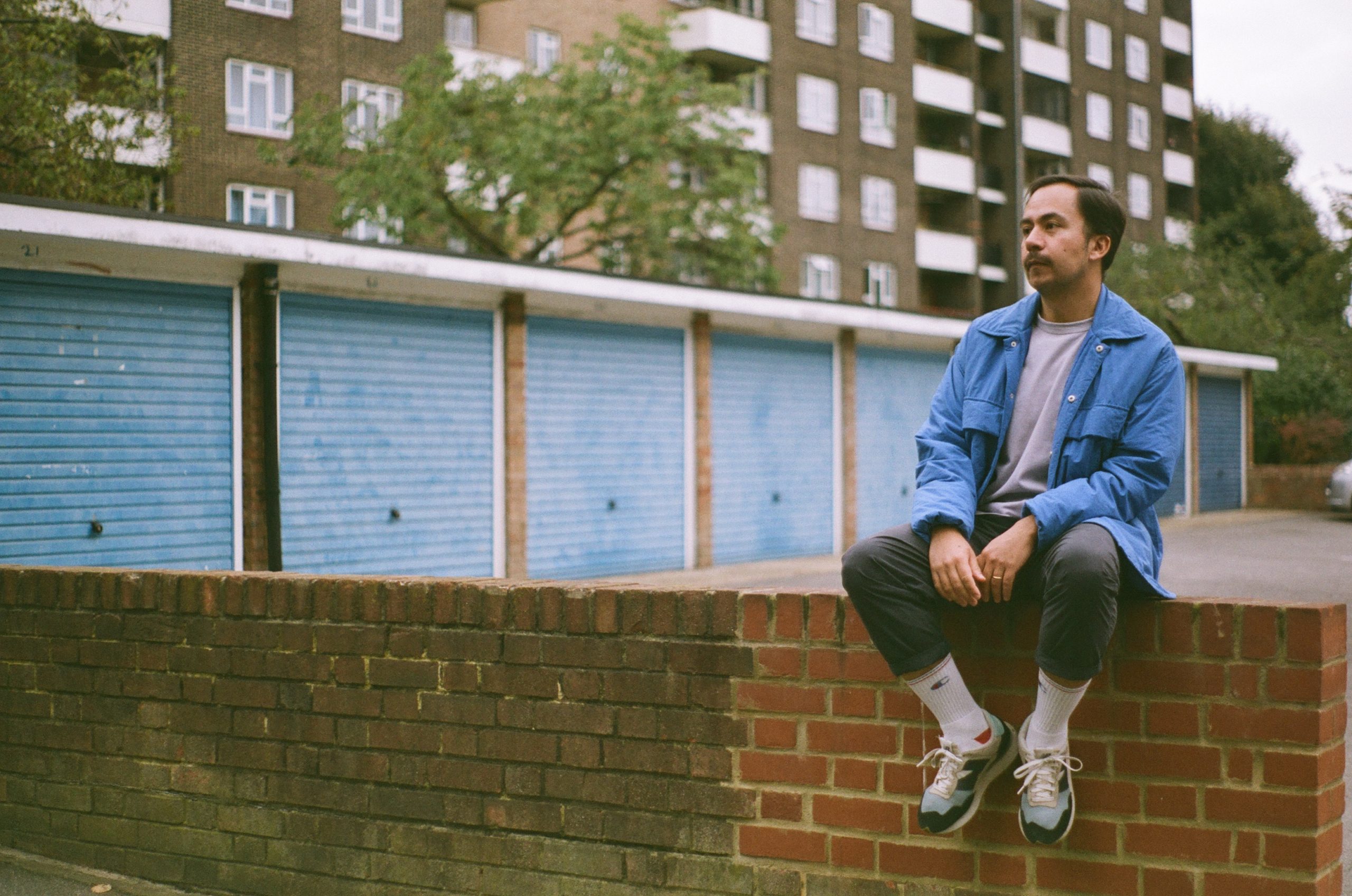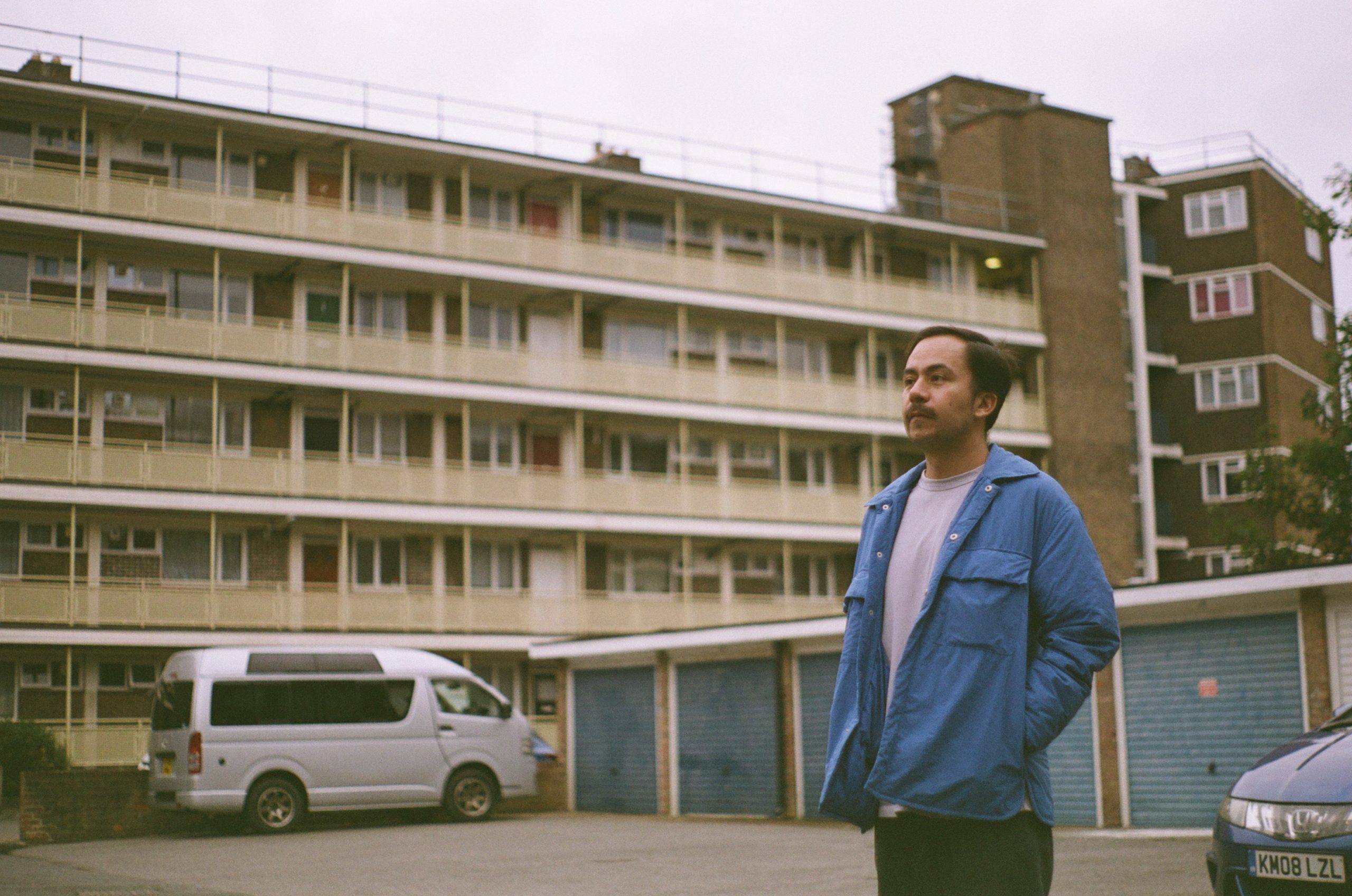Chilean Rafael Perez, better known as DJ Raff, has a long career as a DJ, composer and music producer. He has worked with some of the most important groups of the Hip Hop scene and other genres in Chile and has been living in London for six years now, where he collaborates with different European labels, along with producing his own music, which has a unique electronic and Latin stamp. A radio fanatic, he finds time to work in this field also nowadays.Learn more about the story of this artist who, from a very young age, found his way in music, developing an impeccable technique and avant-garde sounds.
Could you tell us a little bit of your story? Before music, did you do anything else?
For me, music has always been there. Since I was very young I always listened to, and made music. When I was 5 or 6 years old I made up drums and played. I never dedicated myself to anything else, I think it comes from birth… My parents are not musicians, but they are super music lovers, it was customary in my house on Saturday and Sunday lunches to listen to music, we didn’t watch TV.
My dad gave me a Personal Stereo when I was 9 or 10 and it was my favorite toy, it had cassettes and recorded from the radio. I would still go out on the street to ride my bike with my friends, but always with my Personal Stereo. A little later, I started to play music at birthday parties. Then I had my first job at 15 as a birthday DJ, and with my friends we would bring speakers, even some lights and so on.
My parents always supported me, they knew I really liked music. In high school I was in charge of the radio, I went to Liceo Lastarria and played music at recess. Thee most important thing of the day for me was to put together that cassette. Side A was 10 minutes of the first break and side B was 15 minutes of the second break.
What were your first references and influences in music?
The first thing I listened to was the music my parents listened to. My dad was a Beatles fan and my mom was a big fan of romantic music in Spanish, she had some compilations of the San Remo festival, Italian… So I grew up listening to those styles, very pop. There were also several folk groups, but those came later. Then, now by my own, I kept listening to the Beatles. I thought they were an incredible group that never ended. There was always a new album or a compilation that I didn’t know about, it was infinite. When I grew up, Latin rock was in fashion, so I listened to Soda Stereo, Los Prisioneros, Virus and groups like that.
Later, I got into listening to the radio, which is very important to me because every weekend night I would start recording dance programs. For example, Carolina Discotheque, Tiempo Disco Mix or Concierto Discotheque or other radios that no longer exist, like Galaxia, which I remember played very strange music at night and I still have those cassettes. Later I found out that it was Acid House, I’m talking about 1990 or 1991, they played the music that was fashionable on this side of the world. The night was the only time when you could listen to “weirder” music on the radio, at a time when there was no internet. Chile was super isolated.
We know you have an important trajectory with Rap and Hip Hop, how did that come about?
I got to know Hip Hop when I was in school. Once, I came home after school… I remember the exact moment: I turned on the TV and they were showing a movie called Beat Street. It was the story of some breakers and graffiti artists and people who made music. I lived in San Miguel and I saw that the neighborhood where they lived was similar to mine, there were many Latinos who made music without instruments; they had no drums, no guitar, nothing… So they made music with what they had at home. I realized that it was possible to make music without necessarily knowing about instruments, and blew my mind. I always liked the different and the new, to this day, I like to be discovering things. So Hip Hop and Rap at that time were something new and represented me.
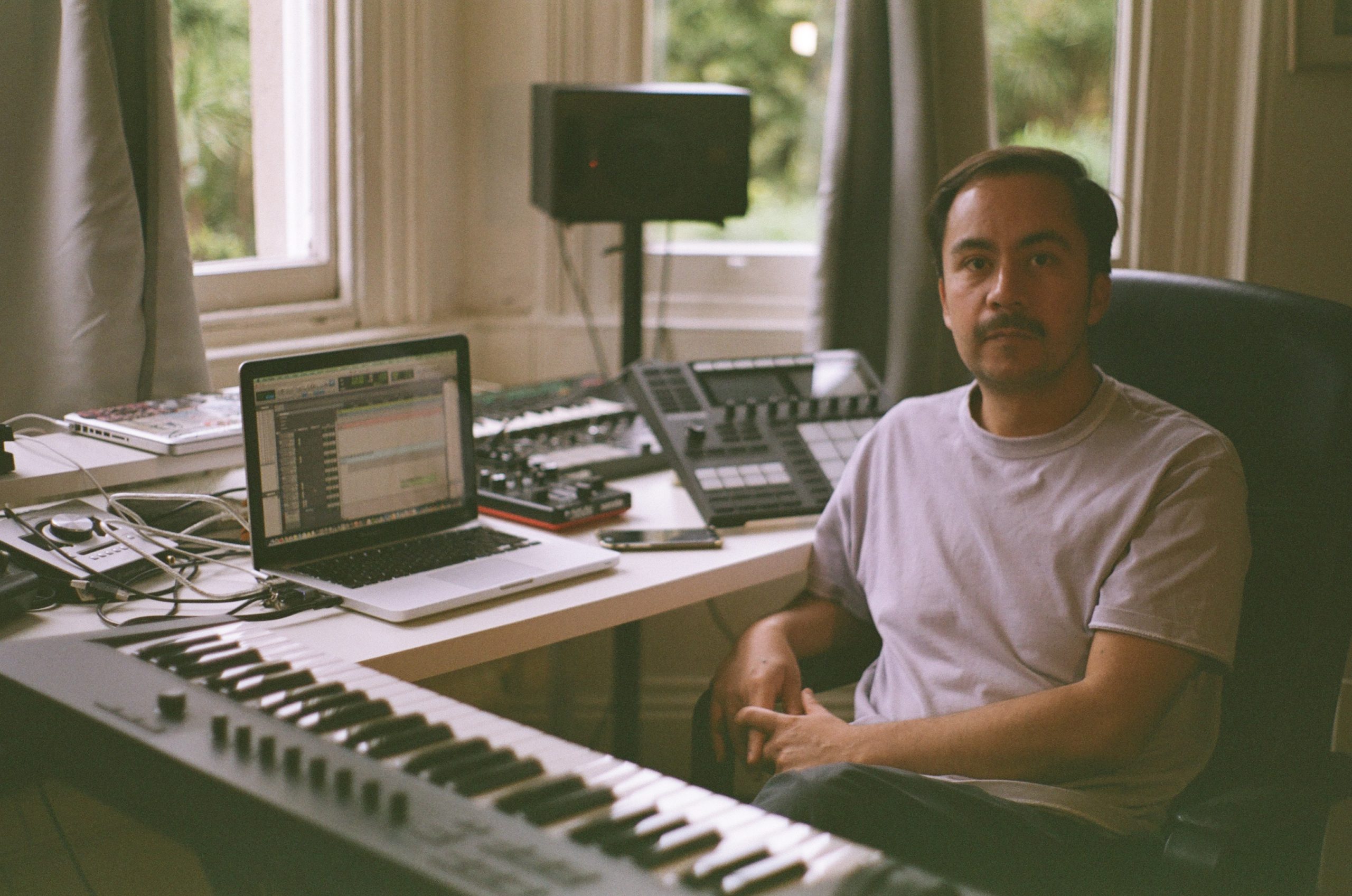
As I said before, I started making music when I was about 15, I made Hip Hop bases for rap groups, among them Tiro de Gracia, when we were all that age. I made some of the first bases for a cassette called Arma Calibrada, it must have been around 93′. We were kids. One day, Juan and Lengua came to my house. I made some bases that I showed them and they sounded terrible, because they were just a few hits with a double tape deck radio. What I did was to look for a loop, a single drum kit in some song and duplicate it many times with a double tape deck. At the end I would create a very long drum kit and on top of that I would add a scratch. It was all recording on top of recording and the result was an “original” base, my own, but it was a copy and paste of many things sounding very bad. That’s how I started.
How did you continue your path in the world of Hip Hop and music?
After that, I had my first group, La Frecuencia Rebelde. Playing with them, I met more people, like Jimmy Fernandez from Pozze Latina, who invited me to participate with them as a DJ. It was my first “professional” band, because they had a contract with a label. In fact, my first official gig in a real context was opening for Beastie Boys with La Pozze Latina in 1995 at the Caupolicán and it was like: “wow, I can’t believe this shit”.
I never saw music as a job, I saw it as playing, it was a time to have an incredible time… sometimes I was there for hours, I went to bed at five in the morning and the next day I had to go to school. But I didn’t mind at all, I loved it. I went from playing with La Pozze Latina to different places in Chile and then I started to meet other groups. I was super young and so, overnight, in the year 2000 I had been in 50 albums… doing scratches, collaborations, remixes, etc., from La Floripondio, through a million groups, Los Tetas and Los Chancho en Piedra too. It was all very fast and to this day I’m still a bit on that wave. Although now I’m also collaborating as a mixing and mastering engineer with several artists from Europe and Latin America.
The arrival of international labels
I also played in municipalities, like in Renca or Peñalolén, in the gymnasiums we played rap gigs and, out of 16 groups, I did some bases for 12 of them. At the beginning it was all very precarious. Then, at the end of the nineties, the time came when international labels started to be interested in Chilean music. That was when, for example, Tiro de Gracia signed with EMI, it was a big hit, they invited me to work on the album Ser Humano. Then all the major labels started to have a rap group, Makiza also came out at that time.
I signed with Sony in 1999 and they hired me to produce La Frecuencia Rebelde. They gave me the best studio in Chile at that time, which was Estudios del Sur, and I was the producer, so I had to sign everything we did. I was in shock, because I went from playing in the municipalities and cultural centers in the outskirts of Santiago, to being in charge of a giant recording, with millions of pesos and with a multinational label. They wanted us to release hits all the time, singles with chorus, that made me a little tired. It was very hard for me to finally end my contract with Sony in order to be free to do other things.
“I went from playing in the municipalities and cultural centers in the outskirts of Santiago, to being in charge of a giant recording, with millions of pesos and with a multinational label.”
After I stopped working with the multinationals and they stopped investing so much, because piracy started and all that, I started working with independent labels that were flourishing all over Latin America and the world. I worked with a label called Big Sur Records, with whom we made in 2001, together with Victor Flores (Solo Di Medina) an album called Top Ten Babylon Artists with several friends. It was a new, independent label, which also released, for example, the first album by Los Bunkers, one by Gondwana, Bitman y Roban, and several others. It was like a promise. Unfortunately, piracy also caused the label to go bankrupt.
What was it like to launch your solo career and how did you get involved with electronic music?
I did the first productions of Tapiarabiajackson, we made a very nice album, like in 2003, which I co-produced with Kike Galdames, from Illapu and that was my first time experimenting with folk music and Hip Hop, fusing.
I always did personal and other people’s work. My first album as a soloist was released in 2006 and it was called Raffolution, it was instrumental music, mixing Hip Hop and electronic. At the beginning it was difficult because I went to the big labels, I showed them the demos and they asked me why I didn’t sing… I told them that I wanted to experiment, that I liked the machines more to make music, to be in the back. They didn’t understand, but the label Mutante Discos, owned by Chalo G and Titín Domínguez, loved the idea and we released the album. Before that, I remember that I felt a little overwhelmed with outside opinions about why I didn’t sing. I needed space and isolation to do something fresh, so in 2005, I raised money for a year and came to London to finish what would be my first solo album, Raffolution.
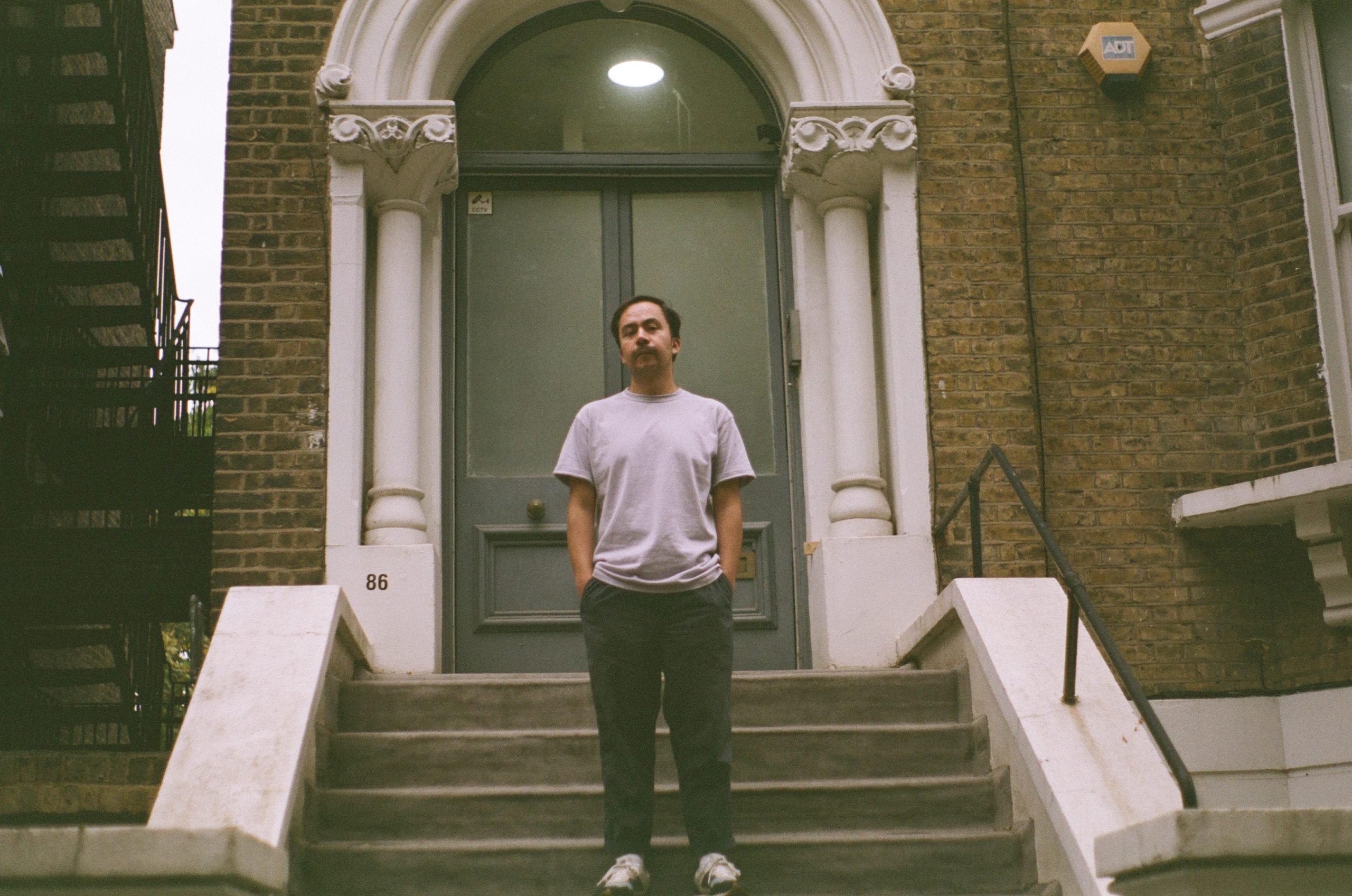
I rented a room and stayed there for two months. I started making music there, I went out every day to wander around the city and met people, DJ’s, went to parties, we talked about music… I was lucky that just that year I had played with some DJ’s from here, DJ Food and Kid Koala. That led me to connect with the Ninja Tune label, they were interested in my work and invited me to their office for tea. They played some of the demos I was making on the Solid Steel show and gave me a bunch of vinyl. That trip to London was a kind of musical retreat, where everything I was doing in the day influenced me a lot. Imagine, being here for the first time, the city is incredible, everything was happening in music, I could see all the bands I liked… I chose this city because I had always liked the music here. I finished the album Raffolution and came back to Santiago and fortunately it went very well. From then until now I have been making music, mixing Latin sounds with electronics among other things.
“I needed space and to isolate myself a bit to do something fresh, so in 2005, I raised money for a year and came to London to finish what would be my first solo album, Raffolution.”
You are also currently living in London, was it difficult to make your way abroad?
Obviously there have been super low moments and others higher, as for all people in all jobs… but I have always kept going, I have never thrown in the towel. Besides, being a migrant is not easy, and when you do it with family in another culture, another language, starting from scratch in a city as competitive as the one I live in, it is very difficult, but it still gives me the satisfaction of knowing that I am doing what I like and the ceiling I have is very high, it is infinite. That gives me more energy to move forward.
What do you think of the Latin American electronic music scene?
I see that Latin American music is well integrated and electronic music in general has come a long way… maybe it is still niche, but now everything points to be more equitable, at festivals there is a concern that there is more presence of women, people from other cultures, not just the typical white, Anglo-Saxon, male headliner.
Latin American electronic music is well present in the world, for example, next week Nicola Cruz is coming here to present an album at Fabric, one of the most important clubs in London and probably the world and he has a night just for him. Paula Tape is traveling all over the world, releasing records with important labels in Europe and getting into the European underground, which is important, it’s not a small thing. I think it has taken its place, the whole Downtempo or “Folktronica” wave, like Chancha Vía Circuito, Kaleema, Carla Valenti, El Búho, who is English, but has always made music with Latin American influence, Dengue Dengue Dengue Dengue also play everywhere. I think it is very strong.
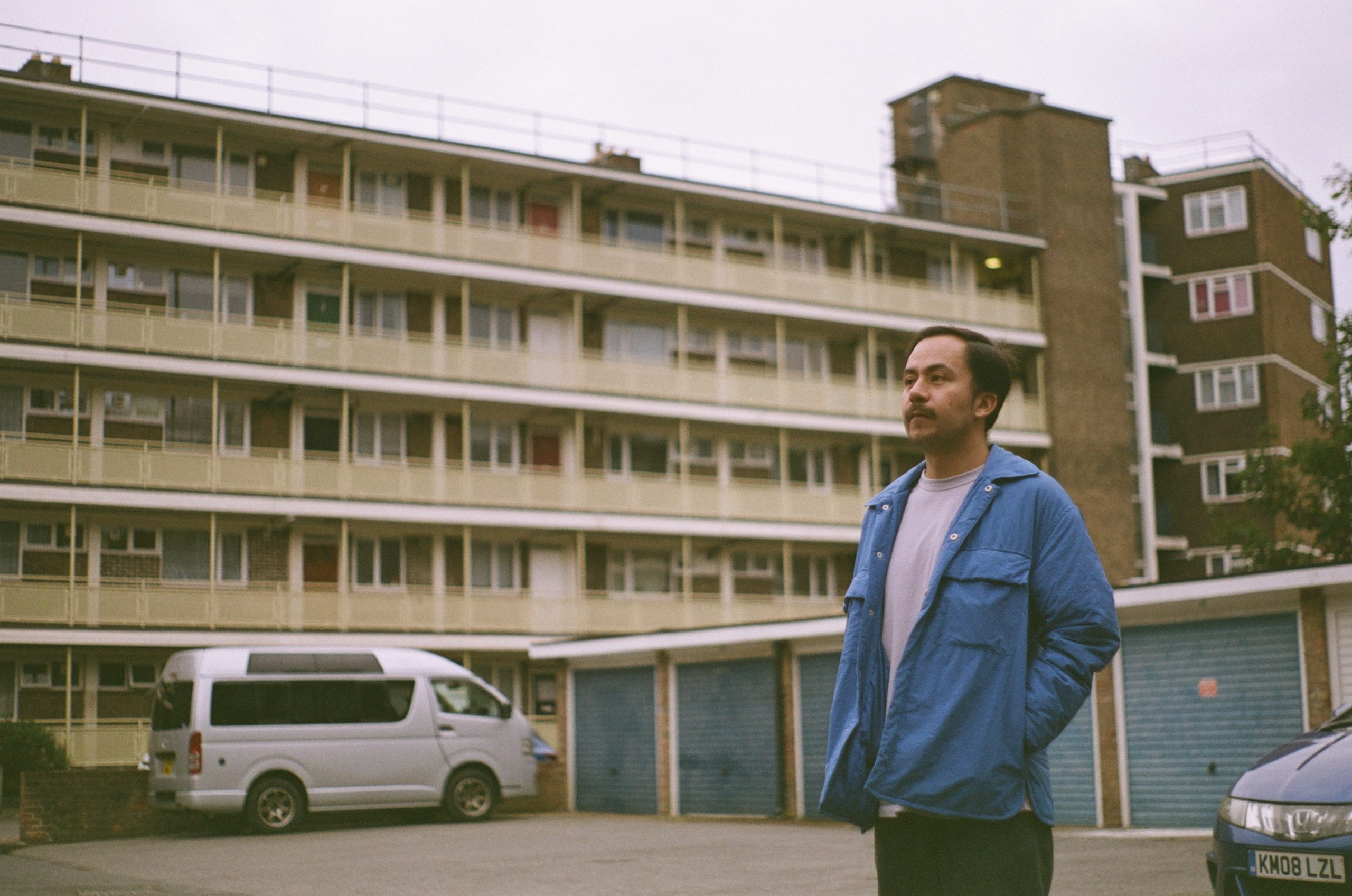
Nowadays everything is changing, people are looking at different scenes. For example, now I think people are looking a lot at Middle Eastern music. I think Arab music mixed with electronic music is going to be very popular, as it was a few years ago with Latin American music.
In my career the song that has had more importance, in quotation marks, in the sense of Latin influence, is one I did in 2006 called Latino & Proud, which is more Hip Hop. It came out in FIFA 2012, it was the curtain of a series called Broad City, and it has also been in a lot of advertising. I’ve been lucky enough to be featured in several synchros and for me it’s important to put my identity in the music I’m making.
What are you currently listening to and what projects are coming up now?
I’ve always listened to music of all kinds. For me bands like The Cure, The Smiths and Joy Division were in my headphones all the time, I always loved that music. I’m currently listening to a lot of film music, from composers who make music for films.
I recently did the music for a Chilean graffiti documentary called Chile Estyle directed by Pablo Aravena. Now I was invited to do the music for a film, so I discovered a new door. It’s something I had never done before, totally new. There is another playground, it’s very entertaining, they show you the film without music, you see the scene and you think of things. You can be at home, go into the kitchen and look for things to make percussions, record and experiment. It’s like being a kid again and playing.
Listen to DJ Raff’s latest release “Liquid State,” on the Dutch label Scene Unseen. It’s a four-song work that explores downtempo, electronic and hip hop beats with Andean and African sonorities.
Listen to the Spotify playlist made by DJ Raff for South Plug here.
